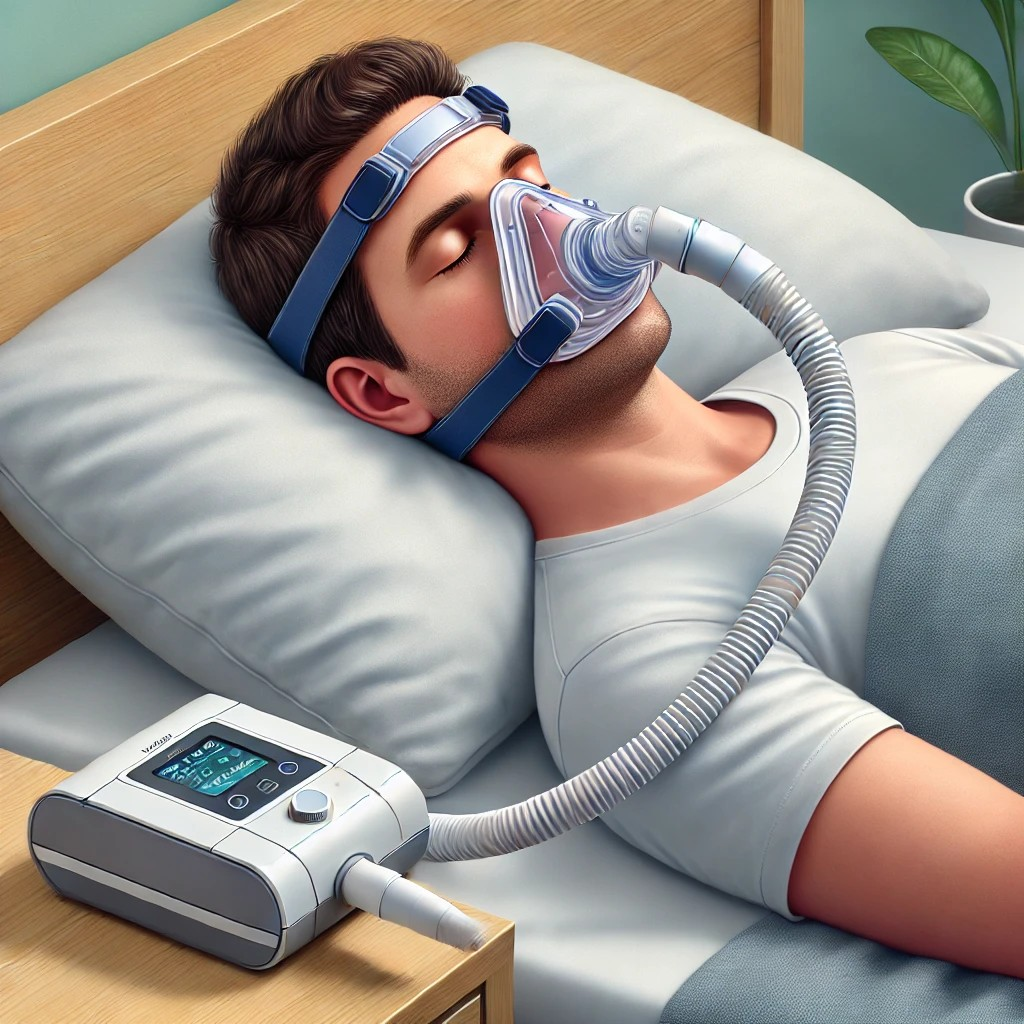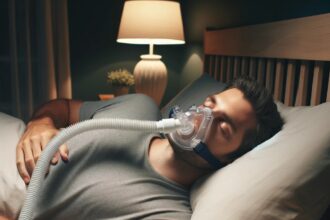CPAP Machines: Understanding And Addressing Legal Issues
Continuous Positive Airway Pressure (CPAP) machines are vital for many individuals dealing with sleep apnea. However, they can sometimes be the source of legal issues due to defects, malfunctions, or inadequate instructions from manufacturers. Understanding these legal matters and knowing how to address them can be crucial for those affected. This article explores ten common problems associated with CPAP machines and provides guidance on the legal actions that can be taken.
At Mass Tort America, we recognize the significance of addressing legal issues related to CPAP machines. Our experienced team is dedicated to helping individuals who have been affected by faulty CPAP machines, ensuring they receive the justice and compensation they deserve. If you are facing problems with your CPAP machine, we are here to assist you every step of the way.
Defective CPAP Masks And Their Legal Implications
One of the most common complaints about CPAP machines is discomfort caused by defective masks. An ill-fitting mask can lead to pressure sores, skin irritation, or even more severe health issues. If you suspect your CPAP mask is defective, it is important to document any injuries or discomfort and seek medical attention immediately.
In cases where a defective mask causes harm, legal action can be taken against the manufacturer. It is essential to preserve the defective mask as evidence and gather all related medical records. Consulting with a legal expert who specializes in product liability can help you understand your rights and the steps needed to pursue a claim.
Class action lawsuits are another avenue for addressing widespread defects. Joining a class action suit can amplify your voice and increase the chances of receiving compensation for your injuries. Staying informed about ongoing legal actions related to CPAP machines can also provide insights into your legal options.
Air Pressure Issues And Manufacturer Liability
Problems with the air pressure delivered by CPAP machines can cause significant discomfort and health risks. If the machine malfunctions and fails to maintain the correct continuous pressure, it can worsen sleep apnea symptoms or lead to other respiratory issues. The application of CPAP maintains positive end-expiratory pressure (PEEP) and improves ventilation/perfusion (V/Q) matching, which is crucial for effective therapy. Users who experience such malfunctions should report these issues to their healthcare provider and the machine’s manufacturer.
Legal liability for air pressure malfunctions often falls on the manufacturer, especially if the issue arises from a design flaw or manufacturing defect. Keeping a record of any communication with the manufacturer and healthcare provider is crucial. Additionally, filing a report with the Food and Drug Administration (FDA) can help document the defect and support your legal case.
In severe cases, seeking legal recourse through individual lawsuits or joining a mass tort action may be necessary. Legal professionals specializing in medical device litigation can provide valuable guidance on how to proceed and ensure that you receive the appropriate compensation for any harm caused.
Noise Issues And Consumer Rights
Excessive noise from CPAP machines can disrupt sleep and reduce the effectiveness of the therapy. While newer models are generally quieter, some users still experience disruptive noise levels. If the noise is due to a manufacturing defect, consumers have the right to seek a replacement or refund under consumer protection laws.
Documenting the noise issue through recordings and keeping a log of sleep disturbances can strengthen your case. Contacting the manufacturer to report the problem and request a remedy is the first step. If the manufacturer fails to address the issue satisfactorily, legal action can be considered.
Consumer protection laws vary by state, so it is advisable to consult with a legal expert who understands the specific regulations in your area. They can help you navigate the legal process and ensure your rights are protected.
Health Complications And Legal Recourse
Health complications such as dry mouth, nasal congestion, and respiratory infections can result from using CPAP machines. CPAP therapy can be particularly beneficial for patients with congestive heart failure by improving ventilation/perfusion (V/Q) matching. If these issues are due to a defect or inadequate instructions from the manufacturer, legal action may be warranted. Users should keep detailed records of any health problems and seek medical advice to document the connection between the CPAP machine and the complications.
Legal recourse can include filing a product liability claim or joining a class action lawsuit. Consulting with a legal professional who specializes in medical device litigation is crucial to understanding the best approach for your case. They can help you gather the necessary evidence and build a strong claim against the manufacturer.
In cases of severe health complications, such as respiratory infections, prompt legal action is essential. The longer you wait, the more difficult it may become to prove the connection between the CPAP machine and your health issues. Taking timely legal steps can help ensure you receive the compensation you deserve. CPAP therapy improves V/Q matching, enhancing oxygenation in patients with respiratory issues.
Claustrophobia, Anxiety, And Legal Support
Some users experience claustrophobia or anxiety when using CPAP masks. While these issues are often addressed through gradual desensitization and relaxation techniques, they can be exacerbated by poorly designed or malfunctioning masks. If you believe your CPAP mask is contributing to anxiety or claustrophobia, document your symptoms and seek medical advice.
Legal support can help you address these issues with the manufacturer. If the mask design is found to be defective or unsafe, a product liability claim can be filed. Joining a class action lawsuit may also be an option if many users are experiencing similar issues. Legal professionals can provide guidance on the best course of action and help you navigate the complexities of such cases.
Contraindications Of CPAP Use
CPAP therapy is not suitable for everyone. Contraindications for CPAP use include conditions like severe bullous lung disease and untreated pneumothorax. Patients with these conditions may experience worsening symptoms with CPAP use. Non-invasive ventilation methods like BiPAP can be considered as alternatives for patients with contraindications. It is crucial to consult with a healthcare provider to determine if CPAP therapy is appropriate.
For patients with contraindications, alternative treatments such as non-invasive mechanical ventilation, or surgery might be recommended. If non-invasive methods are not sufficient, endotracheal intubation may be considered as a potential invasive alternative. Understanding the risks and discussing them with a healthcare provider can help prevent adverse effects. Legal actions may be necessary if a contraindicated condition was overlooked and led to harm.
Documenting any adverse effects and seeking legal advice can ensure that your case is handled appropriately. If you were not informed of contraindications and suffered as a result, legal professionals can help you pursue compensation.
Positive Airway Pressure Devices: CPAP Vs. BiPAP
CPAP and BiPAP are two types of positive airway pressure devices used to treat sleep apnea. CPAP provides a constant pressure throughout the respiratory cycle, while BiPAP offers varying pressure levels during inhalation and exhalation. CPAP maintains PEEP, can decrease atelectasis, and improve oxygenation by enhancing the effective surface area for gas exchange. BiPAP is often used for patients who have difficulty tolerating CPAP.
Both devices have their own set of complications and legal issues. Malfunctions or defects in these machines can lead to serious health risks. It’s important to understand the differences between them and consult with a healthcare provider to choose the best option.
Legal claims related to BiPAP and CPAP devices often involve product defects, improper settings, or lack of proper instructions. Keeping detailed records and seeking legal advice can help if you experience any issues with these devices. Alveolus improves V/Q, enhancing gas exchange and oxygenation, which is crucial for patients with respiratory difficulties.
Managing CPAP For Chronic Obstructive Pulmonary Disease (COPD)
CPAP therapy is commonly used for patients with obstructive sleep apnea, but it can also benefit those with chronic obstructive pulmonary disease (COPD). CPAP helps to keep the airways open, improving ventilation and reducing the work of breathing. Additionally, CPAP therapy helps to prevent airway collapse in patients with COPD, ensuring better respiratory function. However, patients with COPD may require careful adjustment of their CPAP settings to avoid complications.
Proper management of CPAP therapy in COPD patients includes regular monitoring and adjustments by healthcare professionals. Mismanagement can lead to worsened symptoms and other health issues. Hospitalized patients, in particular, may require specialized attention and close monitoring during CPAP therapy to ensure compliance and effective management. Patients should be aware of their rights and seek legal advice if they experience adverse effects due to improper CPAP management.
Legal actions related to CPAP therapy in COPD patients often involve claims of inadequate care or faulty equipment. Keeping detailed records of your treatment and any complications can support your case if legal action becomes necessary.
Improving V/Q Matching With CPAP
CPAP therapy can improve ventilation-perfusion (V/Q) matching, enhancing oxygenation in patients with obstructive sleep apnea and other respiratory conditions. By maintaining positive airway pressure throughout the respiratory cycle, CPAP helps to keep the alveoli open and improves gas exchange. PEEP can decrease atelectasis by keeping the alveoli open, which enhances alveolar surface area and optimizes ventilation/perfusion matching.
Improved V/Q matching and hence better oxygenation can reduce symptoms of hypoxia and improve overall respiratory function. However, improper use or faulty equipment can negate these benefits. Patients should be vigilant about their treatment and consult with healthcare providers to ensure their CPAP therapy is effective.
If CPAP therapy fails to improve V/Q matching due to equipment defects or improper settings, legal action may be warranted. Documenting your treatment and any complications can support your case. Seeking legal advice can help you understand your rights and the steps needed to pursue compensation.
Nasal CPAP And Nasal Prongs: Usage And Issues
Nasal CPAP, which delivers continuous positive airway pressure through the nasal passages, is a common treatment for obstructive sleep apnea. Nasal prongs or masks are used to deliver the positive pressure throughout. However, issues such as nasal congestion, dryness, and irritation can arise.
Patients experiencing these issues should consult with their healthcare provider for adjustments or alternative solutions. Legal issues can arise if the nasal prongs or masks are found to be defective or if inadequate instructions were provided.
Documenting any adverse effects and seeking legal advice can ensure that your case is handled appropriately. If you were not informed of potential issues and suffered as a result, legal professionals can help you pursue compensation.
Using CPAP For Obstructive Sleep Apnea Syndrome
CPAP therapy is the gold standard for treating obstructive sleep apnea syndrome (OSAS). It works by keeping the airway open during sleep, preventing apneas and improving sleep quality. CPAP therapy effectively treats obstructive sleep apnea (OSA) by keeping the airway open. However, improper use or faulty equipment can lead to complications.
Patients with OSAS should be aware of their rights and seek legal advice if they experience adverse effects due to CPAP therapy. Keeping detailed records of your treatment and any complications can support your case.
Legal actions related to CPAP therapy for OSAS often involve claims of inadequate care, improper settings, or faulty equipment. Consulting with a legal professional who specializes in medical device litigation can help you understand your rights and pursue compensation.
Contraindications And Complications Of CPAP Therapy
While CPAP therapy is highly effective for many patients, there are contraindications and potential complications. Conditions such as severe bullous lung disease and untreated pneumothorax are contraindications for CPAP use. Complications can include nasal congestion, dryness, and skin irritation.
CPAP patients should consult with their healthcare provider to determine if CPAP therapy is appropriate for them. Understanding the risks and discussing them with a healthcare provider can help prevent adverse effects. Legal actions may be necessary if a contraindicated condition was overlooked and led to harm.
Documenting any adverse effects and seeking legal advice can ensure that your case is handled appropriately. If you were not informed of contraindications and suffered as a result, legal professionals can help you pursue compensation.
Application Of CPAP In Managing Respiratory Distress Syndrome
CPAP therapy is also used to manage respiratory distress syndrome (RDS), particularly in preterm infants. Noninvasive positive pressure ventilation methods like CPAP are used to manage respiratory distress syndrome by maintaining positive end-expiratory pressure (PEEP), which helps to keep the alveoli open, reducing the work of breathing and improving oxygenation.
However, improper use or faulty equipment can lead to complications. Patients should be aware of their rights and seek legal advice if they experience adverse effects due to CPAP therapy. Keeping detailed records of your treatment and any complications can support your case.
Legal actions related to CPAP therapy for RDS often involve claims of inadequate care, improper settings, or faulty equipment. Consulting with a legal professional who specializes in medical device litigation can help you understand your rights and pursue compensation. CPAP therapy is often delivered through nasal prongs or masks that bypass the nasal cavity to provide effective treatment.
Legal Issues Related To Positive Airway Pressure Devices
Positive airway pressure devices, including CPAP, BiPAP, and others, are used to treat various respiratory conditions. CPAP therapy provides continuous pressure to keep the airways open, which is essential for preventing alveoli from collapsing and improving ventilation and oxygenation. However, malfunctions or defects in these devices can lead to serious health risks. Patients should be aware of their rights and seek legal advice if they experience adverse effects due to these devices.
Legal claims related to these types of positive airway pressure devices often involve product defects, improper settings, or lack of proper instructions. Keeping detailed records and seeking legal advice can help if you experience any issues with these devices.
Consulting with a legal professional who specializes in medical device litigation is crucial to understanding the best approach for your case. They can help you gather the necessary evidence, disclose any financial relationships with ineligible entities, and build a strong claim against the manufacturer.
Why Choose Mass Tort America For Your CPAP Machine Legal Matters?
If you have experienced problems with your CPAP machine that have led to health issues or other serious consequences, legal action may be necessary. Mass Tort America specializes in handling cases related to defective CPAP machines and their negative impact on users. Our experienced legal team is committed to holding manufacturers accountable for faulty equipment and ensuring you receive the compensation you deserve.
At Mass Tort America, we understand the complexities of mass tort cases and have a proven track record of successfully navigating these legal challenges. Patients from all over the nation trust us to handle their cases with diligence and care. Contact us at 800-356-4338 or visit our contact form at https://masstortamerica.com/contact/ to discuss your case. Our dedicated team is ready to support you through every step of the legal process.



















